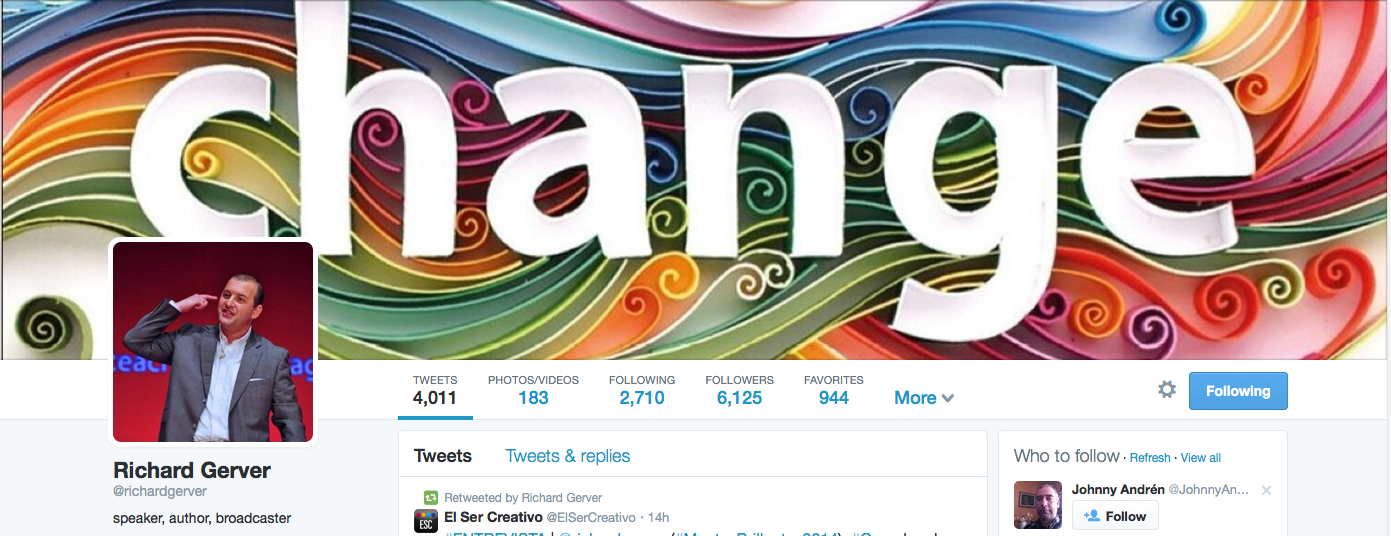The Manifesto for Change
DOI:
https://doi.org/10.3384/venue.2001-788X.14311Keywords:
SkolutvecklingAbstract
This time last year the publisher, Bloomsbury, approached me to see if I would be interested in updating my book ‘Creating Tomorrow’s Schools Today’ and launching a second edition. I had my reservations at first and then I realised the timing.
They wanted to launch the new version this month and indeed the English edition is launched on the 25th September.
I realised that the launch would be a few months before the next General Election in the UK; that crazy time when politicians suddenly seem to care, kiss babies and listen to our views. That time when they begin to write and articulate their manifestos; the policy promises, that should we decide to vote for them to govern our country for the next five years, will become law.
I have to say that I am not optimistic; the last five years have been a disaster for education in England and I am not sure that any politician currently working here has the courage, vision or understanding necessary, to develop the culture of transformation our children need and deserve.
So the timing swayed me and I agreed, in the hope that the new version could become a catalyst for discussions that might lead to a new vision for the future.
As I edited and updated the text and where relevant, added some new insights and experiences, I decided that at around launch time I would devise my own, simple five point plan that I hope, I can use to challenge policy makers and education professionals to begin the debate, we need if we are to pull back from the potential abyss that looms ahead for our children’s futures, if we continue to blindly do what we have always done and believe that just becoming more efficient at it will be the answer.
There are of course, a huge number of issues that need to be developed if we are to genuinely create schools that are fit for tomorrow, but I passionately believe in simplicity, collaboration and action, so in that spirit I have refined my starting points to the five here.
As many of you who know me, know; I don’t believe that we can just wait for some policy making knight in shining armour, to come riding over the hill and lead us to the future.
This means that we must talk to each other and develop actions that we can then share and build upon; the process of contagion.
What I ask of you, is that you take the five points here to start those conversations and debates, that you create ideas from them and then share them with everyone you can. If you take action in some small way, I would love to hear your stories so that I can in turn, share them with my audience. You never know, maybe, just maybe our revolution can begin here, today.
Vision
We have to start at the beginning and that means asking ourselves what the purpose of education is in the 21st Century, as we actually begin to prepare children for life in the 22nd Century.
This in essence should not be a complicated task, but it does mean that we need to understand exactly what kind of skills and competencies our children will need and for that we must broaden the discussion to include people beyond education.
What we mustn’t do is just keep obsessing with how we prepare our children to take exams and gain qualifications.
The OECD’s Skills Outlook report published last October, warned us about systems that are dangerously focused on qualifications driven education systems. We must focus on educating people not data!
From the bottom up
Linked to the first challenge, we need to break the cartel that higher education holds over entire education policy. There is a vested interest amongst many higher education institutions for them to enrol more and more students.
At a time where increasing numbers of major, global employers are saying that they no longer consider a degree to be an important criteria for appointment and that they are far more interested in a young person’s interpersonal skills than their academic ones, we must shift the development of mass education policy back to the grass roots.
I have always believed that the experts in developing the whole child, can be found in outstanding early years units; we must ask them how we develop systems that carry their great work on and not replace it with desks and text books.
Recruitment and training
We must look to develop a more entrepreneurial outlook in the teaching profession; people who are passionate about action research and moving and evolving their practice.
In order to do that, we need to make the profession attractive to our most dynamic thinkers and doers, also we need to redesign teacher training and development so that we shift from training people to deliver learning, towards people who can engineer learning.
All teachers should have to continually refresh and stimulate their thinking, partly by spending professional development time outside of the classroom and in organisations and situations that are not directly connected to schools.
It takes a village to raise a child
We must stop believing that children are educated solely at school and that parents can drop their children off at 5 years old and pick them up at 18; educated! Schools must become hubs of education, where the whole community meets to help share experiences, skills and understandings in order to prepare our children for the challenges of their future. Schools cannot be silos where learning is confined behind large walls and unwelcoming doors.
Beyond politics
We must find a way to depoliticise education. Education transformation needs to be built around a long term vision and an organic process of change and development; not endless new policies that are scrapped and reinvented every 5 years.
Politicians should be able to hold the system to account on behalf of parents and the tax payer, but they should not be allowed to define the system and practice of education.
Education must be allowed to develop independent of political ideology and short termism. Medicine has evolved beyond all recognition over the last 100 years; it is developed by scientists and doctors; committed to continuous research and development.
As a result, a surgeon transported from a hospital 100 years ago would be lost in a modern equivalent. Sadly, a teacher doing the same thing in a school wouldn’t.
Education needs, deserves and must have sustainable transformation, driven by experts who are committed to collaboration and a real vision for the future of our children and our planet.
Let the revolution begin!

Downloads
Published
How to Cite
License
Copyright (c) 2014 Gerver

This work is licensed under a Creative Commons Attribution-NonCommercial 4.0 International License.
 Unless otherwise stated, works from 2019 are licensed under a Creative Commons Attribution-NonCommercial 4.0 International License.
Unless otherwise stated, works from 2019 are licensed under a Creative Commons Attribution-NonCommercial 4.0 International License.

 Richard Gerver began a teaching career in 1992 and rose through the ranks fast being identified by the schools inspectorate in 1997 as one of the most outstanding teachers in the country. By 2005, he had won the prestigious School Head Teacher of the Year Award at the British National Teaching Awards for his work in leading a school on the brink of closure to becoming one of the most innovative in the world. By 2003, Gerver was working with Tony Blairs Government as an advisor on education policy. In 2006, his work was celebrated at The UNESCO World Arts Education Conference in Lisbon, Portugal.
Richard Gerver began a teaching career in 1992 and rose through the ranks fast being identified by the schools inspectorate in 1997 as one of the most outstanding teachers in the country. By 2005, he had won the prestigious School Head Teacher of the Year Award at the British National Teaching Awards for his work in leading a school on the brink of closure to becoming one of the most innovative in the world. By 2003, Gerver was working with Tony Blairs Government as an advisor on education policy. In 2006, his work was celebrated at The UNESCO World Arts Education Conference in Lisbon, Portugal.


